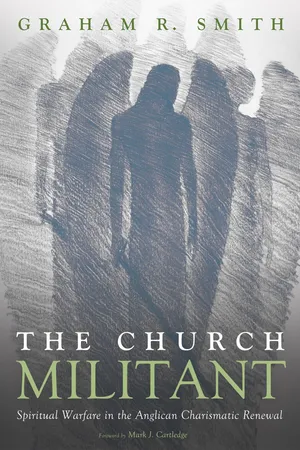![]()
1
Introduction
1.1 The spread of Pentecostal and charismatic Christianity
The unparalleled growth and spread of Pentecostalism has been described as “the most dramatic development of Christianity in the [twentieth] century”; not just in terms of the Pentecostal churches that arose from the Azusa Street revival of 1906 (as well as other independent but parallel origins in other countries), but also charismatic movements such as the one which widely penetrated the traditional historical churches from the 1960s, both Protestant and Catholic, in what has been termed the charismatic renewal. The total number of Pentecostals and charismatics worldwide numbers at least a quarter of a billion. There is thus now a highly significant proportion of Christians and churches that can be termed “charismatic,” i.e., those that have an emphasis on a dynamic experience of the Holy Spirit and the operation of gifts of the Holy Spirit.
A number of observers have attempted to account for this rapid growth of Pentecostalism worldwide. From a sociological perspective, the initial tendency was to emphasize external social factors to account for this growth, with its origins predominantly among the Black American and working-class population in America, and its phenomenal growth amongst the poorer sections of Latin American society. More recently, the ability of Pentecostalism to leap across class and cultural divisions has led sociologists to emphasize its exploitation of the globalization of a market culture. Some sociologists have described this global spread in terms of a confident expansion into an “unbounded” global space.
Anderson, however, points out that it is reductionist to consider only such external factors; to fully account for the process it is also necessary to consider internal religious and cultural factors; and sociologists Martin and Droogers recognize this too. Droogers identifies three broad features of Pentecostal ideology that makes Pentecostals feel part of a global community, and one of these is a dualistic worldview that distinguishes between the “world” and the “church,” the “devil” and the “divine,” and between “sickness” and “health.” He points out that the simple war schema between God and Satan, and the combination of healing and/or exorcism that potentially offer a solution to almost any problem that may occur, are two of the few simple, “hard-selling” schemas that make up the basic repertoire that forms the Pentecostal identity. He also recognizes that the dimensions of “global space” that Pentecostals seek to conquer includes a sense of “spiritual space,” where Pentecostals can combat the terror of the demons, through the Holy Spirit seeming to reduce their territory, using spiritual weapons such as prayer and healing.
Spiritual warfare has also begun to figure in theological analyses of the spread of Pentecostalism. Anderson observes that “the main attraction of Pentecostalism in the Majority World is still the emphasis on healing and deliverance from evil”; others have identified deliverance from evil spirits as one of the main factors in Pentecostal growth. This emphasis globally on spiritual warfare may have increased alongside evangelistic initiatives around the millennium. In this way the concept of “spiritual warfare,” which often encompasses healing and deliverance ministry on the individual level with more large-scale strategies for mission, has become a key element in the theology and spirituality of the Pentecostal and charismatic worldview. As such it is the main focus of this thesis, as manifested primarily in the Anglican charismatic renewal. Focusing here specifically on the Church of England illuminates how the charismatic approach to spiritual warfare (or the spiritual battle, a term used similarly by many Anglicans) operates contextually in a particular Christian tradition. As a practical theological study, it also engages with wider theological discussions in pneumatology, particularly concerning the ontology of evil, and offers a model for the renewal of praxis in the charismatic Anglican context.
1.2 Theological study of charismatic spiritual warfare
The increased attention on prayer and spiritual warfare in Pentecostal and charismatic churches worldwide has only recently been strongly reflected in more serious theological study. Pentecostalism, formerly reliant on oral theology and suspicious of academic theology, it has begun to produce its own Pentecostal academics, such as Cecil Robeck and Amos Yong. In addition, the growth of charismatics since the 1960s within traditional denominations, with their long history of academic enquiry, has contributed to a growing body of serious study engaging with charismatic phenomena and their theology and spirituality.
There have been a few attempts at providing an overview of Pentecostal or charismatic theology, but until recently coverage of the spiritual warfare dimension in these was brief. For example, in his classic study of Pentecostal history and theology, Hollenweger only has a brief chapter on demonology; and Land’s theological study of Pentecostalism spirituality, whilst recognizing the final victory over death ...
